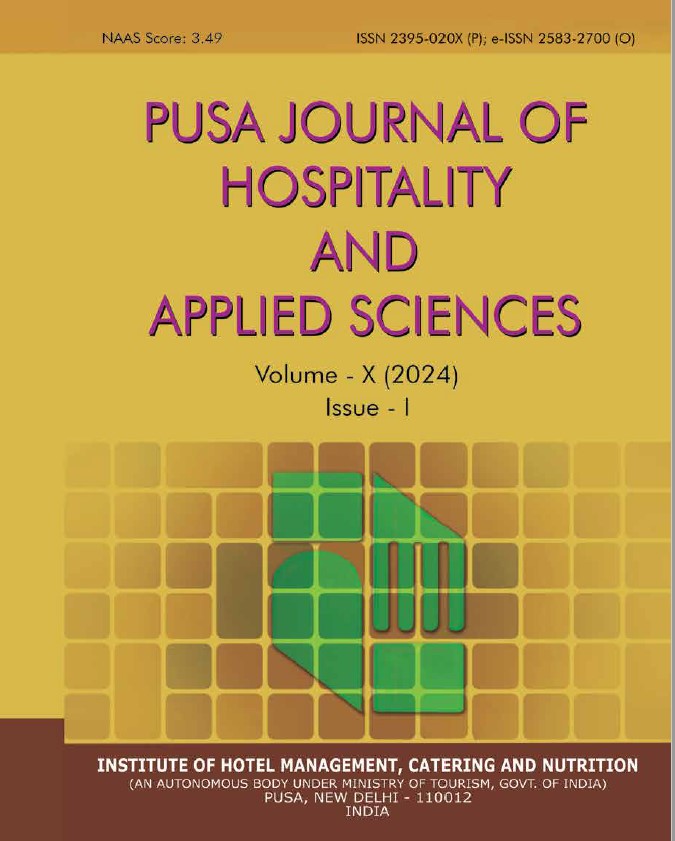Current Scenario Of Sustainable Development Tourism In Udaipur
Keywords:
Sustainable Development, Rational Development, Inclusive Growth, Promoting Gender Equality, Sustainable Tourism PracticesAbstract
Background: Tourism is an activity that consumes natural resources and while at its peak over exploitation of the resources occurs and on the other hand has potential to generate employment for inclusive growth. Sustainable practices by tourists can help in reducing water and energy cost as well as pollution. Rational practices by hotels can contribute in promoting gender equality in employment; encouraging locals by buying raw materials from them apart from energy and water saving and waste management. For ensuring the green and rational development the local government should work while aligning with guidelines given in smart city mission. Objective: This research aimed to find out about what is being done to promote sustainable tourism development by local governing authority, sustainable practices done by tourists and different service providers like hotels’ sustainable practices for providing appropriate services. Methodology: This research covered the geographical area of the city of Udaipur in Rajasthan because it’s one of the most famous places to visit for tourism in Rajasthan. The sampling included convenience sampling of 3 staff members from Municipal Corporation of Udaipur by conducting unstructured interviews and considering the information of schemes given on government site of Rajasthan for finding out government’s initiatives for sustainable development of this tourist destination. The simple random sampling for 55 tourists’ feedback about their practice of sustainable tourism has been taken by conducting survey through questionnaire. The sample of three 5 star hotels and two 4 star hotels for finding out their sustainable practices for providing services has been considered by conducting structured interviews of 3 key operational post holding staff members of the respective hotels. Results: The findings really show some positive steps taken by government and a gradual but a positive shift to sustainable tourism practice by hotels and also show that the phenomenon of sustainable practices is still not quite adopted by the tourists. Conclusion: This research provides outputs about supportive policies of local government for sustainable development of tourism and sustainable practices carried out by tourists and hotel by determining sample size from administrative office, some hotels and tourists randomly, collecting and analyzing the data. The outputs are limited and provide the base for finding out more in this regard in the city.
References
Babu, D. E. & Kaur, A. (2014). Practices for a Sustainable Supply Chains: A Tourism Perspective, 5 (3). https://tourism.gov.in/sustainable-tourism-criteria-india-principles and-indicators-tour-operator-and
Chandra, S. & Kumar, A. (2020). Review of Urban Conservation Practices in Historic Cities, International Journal on Emerging Technologies 10(1): 74-84(2019) ISSN No. (Print) : 0975-8364 ISSN No. (Online) : 2249-3255
Kapera, I. (2018). Sustainable tourism development efforts by local governments in Poland.
Mathur, M. (2016). An empirical study of issues, challenges and prospects of sustainable consumption in selected cities of Rajasthan & Gujarat UGC major research project report.18 (pp 132-153).
Niti Ayog. (2018). Report of Working Group II Sustainable Tourism in the Indian Himalayan Region, https://niti.gov.in/writereaddata/files/document_publication/Doc2.pdf
Pal, S. & Rawal, Y. (2020), Perception and Attitude of the Host Community on Socio Economic Development through Tourism- A Case Study on Udaipur Rajasthan, 29(3)
Ruhanen, L. (2012). Journal of Sustainable Tourism, Local government a facilitator or inhibitor of sustainable tourism development. 21(1), 1-19. https://tourism.gov.in/sites/default/files/2020-04/rajasthan.pdf, 2020




